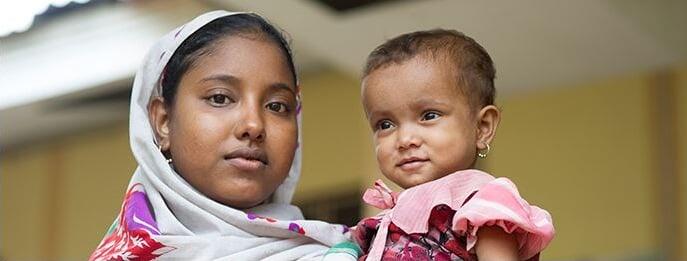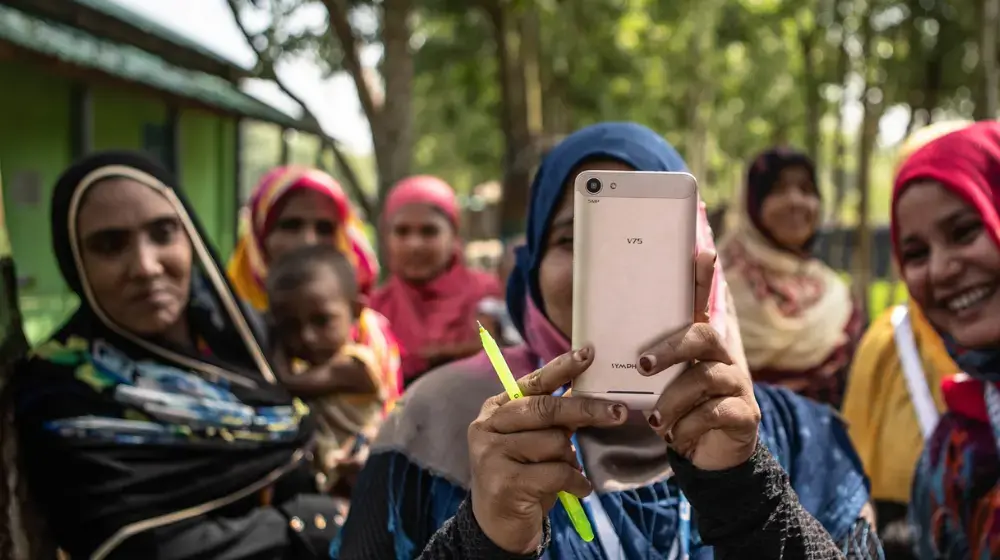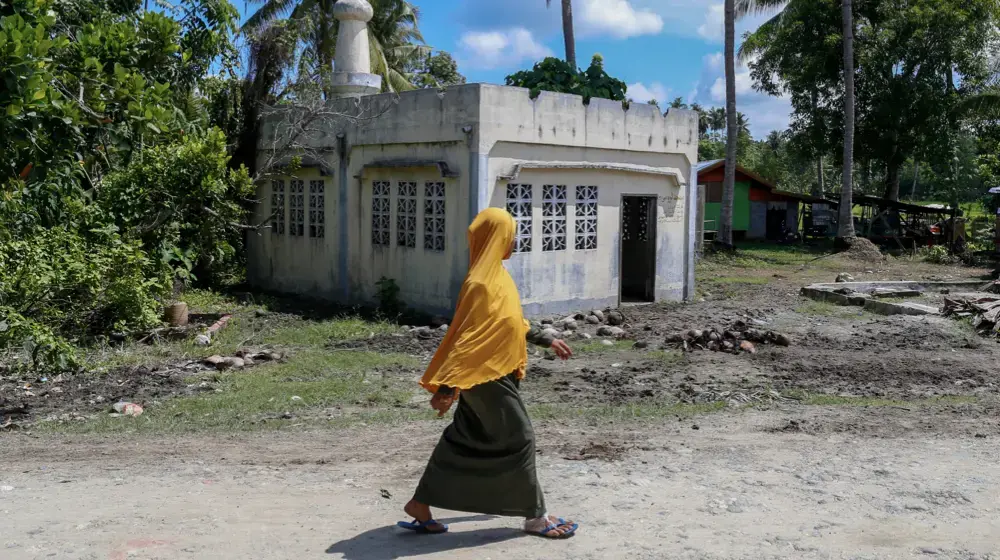SITTWE, Myanmar – UNFPA-supported mobile medical teams have resumed providing life-saving reproductive health services in 15 camps for displaced people in Myanmar’s Rakhine State.
Four teams have been deployed, including 10 UNFPA-sponsored midwives, five of whom recently received hands-on training in Yangon. The teams, which also include doctors and health assistants, will provide much-needed health services to around 90,000 people from both Rohingya and Rakhine communities.
The resumption of mobile health services comes after humanitarian operations were suspended in March following attacks on UN and international NGO premises in Sittwe. Humanitarian workers were evacuated after the attacks.
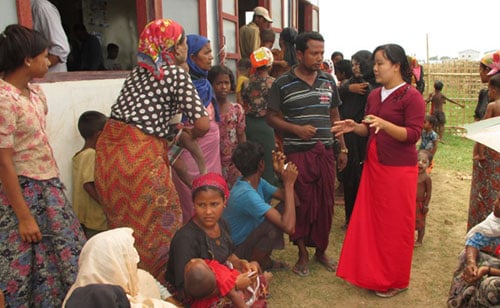
Today, 60 per cent of the staff have returned, but some critical activities remain affected.
Providing essential care
Many of the internally displaced people in Rakhine State have limited mobility and face continuing challenges accessing medical care, including reproductive health services.
The mobile teams – working under the guidance of the state health director with coordination by UNFPA’s local partner, the Myanmar Medical Association – have restarted daily medical missions in townships affected by communal conflict.
Since early May, the midwives have provided services in Sittwe, Myebon, Pauk Taw and Mrauk Oo townships. Among the services they provide, the mobile teams identify high-risk symptoms in pregnant women, then refer these cases to appropriate facilities for special treatment.
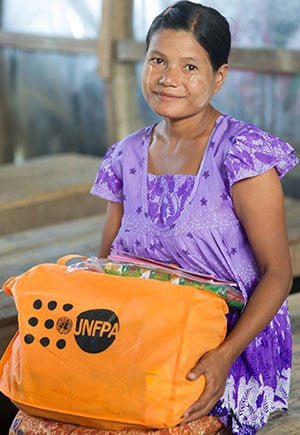
During May, they provided antenatal care and clean delivery kits to more than 800 women, about a third of them pregnant, in the 15 camps. They also cared for postnatal mothers and newborns. Additionally, 35 women received family planning assistance, including information and contraceptive supplies.
The teams also offered health education sessions about topics related to safe motherhood and newborn care, including how to recognize life-threatening symptoms such as rapid breathing in newborns.
Significant barriers remain
Still, there remain significant barriers to care.
“Currently, the 10 UNFPA midwives are not enough to provide reproductive health care for large [internally displaced] populations – for example, 91,888 people in Sittwe Township alone,” said Mukesh Prajapati, a humanitarian affairs specialist with UNFPA.
Additionally, health workers are not allowed to stay in the camps at night, severely restricting the amount of time they can provide services to those in need.
“The mobile medical teams have limited hours during the day time and can only provide health care for three to four hours during their outreach,” Dr. Prajapati said.
“As a consequence, women who need services during the night or periods when mobile medical teams are not present have difficulties accessing emergency medical care.”
Recruiting skilled health workers to provide services in Rakhine is also an ongoing challenge, Dr. Prajapati added.

